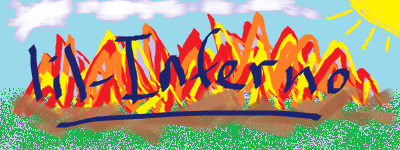What I'm refering to is a variety of switches as conditions based on what has happened in the game. Lets take this to a mathematical level of probability and statistics. Lets say that I want to have a random number of quests that a user has the chance to complete at the beginning of an RPG. I would like to use 3 random switches as the conditions of the quest being chosen by SC at the beginning of the map, so we have Random1, Random2 and Random3 as switches now. Each switch has a value of either on or off, one or zero (as does binary code). This means that we need to calculate the total possible outcomes of the Random(#) switches when we randomize them at the start of our RPG.
In order to calculate the total possible outcomes, we need to use a simple formula known as the "Multiplication Rule". This rule should be applied whenever you are creating a game that has a variety of randomized switches as conditions so that you can control the outcome of your switches having their different orders set off. To further explain this idea, I'll just go directly to the calculation process. So, we have 3 switches that can each carry 2 conditions (on or off). According to the Multiplication Rule, the total possible outcomes is calculated as:
n1 x n2 x n3 = total possible outcomes
where each n(#) represents a specific variable that has a possible outcome of the integer that it holds. So therefore, each n that we have should have the value of 2, because each one of our three switches have 2 possible conditions. If you calculate the total outcomes now, you should get:
2 x 2 x 2 = 8
Lo and Behold, we have 8 possible quests for our heroes to start off with when they play our RPG (only one should be chosen by your triggers). When you put this into perspective, it makes the gameplay completely random (assuming that SC does actually randomize switches) if you keep adding additional randomized quests after the first one that is chosen. This would keep an RPG or any other game that you can apply this to very fresh and original with each time it is played.
Now, I'm sure you realize that this has been used before in many games such as Random Item Defence, but I have never really seen its full use in a really good RPG. The possibilities are endless with this application. Gamers could play a single RPG over and over and over again, having a new experience every time, if randomization permitts. Keeping starcraft as innovative as possible should be key in the design of any game. Sure fancy text and EUDS are nice, but how about try something that makes the user want to play your game 1,000,000 times over because it's different every time?
An example of what I mean is shown below for the trigger and how it should look if you attempt to implement this into any game. First of all you need to randomize your triggers for the initial set of quests which is simple.
TRIGGER: Randomize Beginning of Game
PLAYERS:
-Current Player
CONDITIONS:
-Elapsed game time is exactly 3 seconds
ACTIONS:
-Randomize Random1
-Randomize Random2
-Randomize Random3
Now we need to set the conditions for if each one of the possible 8 conditions are met.
TRIGGER: Randomized Quest1
PLAYERS:
-Current Player
CONDITIONS:
-Random1 is Cleared
-Random2 is Cleared
-Random3 is Cleared
ACTIONS:
-Comment: Quest 1 is Set
-Set Quest1 (triggering quest one to display and set up)
With the simple application of changing the switches from "Cleared" to "Set" you can create the 8 possiblities or outcomes for the 8 different quests that were mentioned at the top of this post. Remember, you must realize that you do not need to use exactly 3 sets of switches for this. You may use the multiplication rule with only 1 switch which would simply be
n1 = total 2 = total
Or you could use two switches to make a possible 4 outcomes as shown:
n1 x n2 = total 2 x 2 = total = 4 possible outcomes
The only thing you need to remember is that the switches depend on the number 2 because they have an ability of 2 outcomes themselves (set or cleared).
If we added this to an RPG they would truly be "adventurous" and be played much more often than the average anyday "classic" RPG because they have more outcomes. Think if we added an addition 2 quests after the first quest was complete from the possible 8, and an additional 2 after that. We would use the Multiplication Rule again and simple calculate how many different ways they can play the game.
n1 x n2 x n3 = total 8 x 2 x 2 = total = 32 posbbile ways to complete 3 quests
Now you should see what i mean. This has many applications besides RPGs as well, we could use this idea in defence games and create shear chaos for certain times that the game is played, and easy times for the others. I challenge you to use this idea and create a game that is not only innovative, but random as well.
If you would like to read up on the Multiplication Rule, I have included a PDF file that talks about probability (nPr, nCr, Multiplication Rule) from when I took it in university. Enjoy, and happy gaming!

Attachments:
Post has been edited 3 time(s), last time on Jan 23 2010, 10:41 pm by JaFF. Reason: Final fix, hopefully
None.








